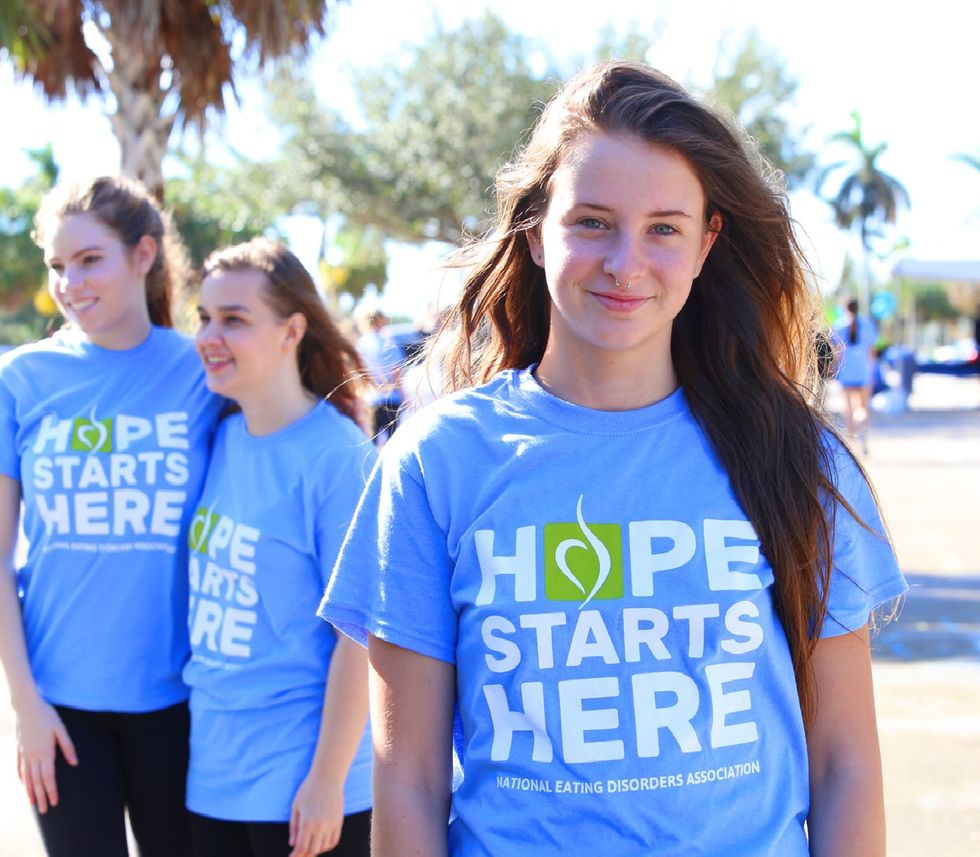Next week (2/26 - 3/4) is National Eating Disorder Awareness (NEDA) Week, a week where education, prevention, and treatment take the forefront.
In the United States alone, as many as 20 million women and 10 million men will struggle with an eating disorder at some point in their lives. This statistic becomes especially troubling considering eating disorders have the highest mortality rate of any mental illness. Despite these growing numbers, eating disorders are still incredibly stigmatized, and they are born and raised in silence.
This is exactly why National Eating Disorder Awareness Week is so important – to me, a survivor, to the millions of people struggling, and to a society that turns the other cheek to one of the deadliest, and most preventable, illnesses of our time.
This year's theme, sponsored by the National Eating Disorders Association, is Let's Get Real, a challenge and a promise to fight stigma and make it okay to talk about eating disorders, whether you're directly affected by them or not. The program encourages prevention through things like education and awareness, including the ability to recognize unhealthy thought and behavior patterns that may lead to the development of an eating disorder.
It also aims to educate the public on signs and symptoms of eating disorders to guide people in helping their loved ones who are struggling toward treatment and recovery. Along with prevention, the program encourages treatment and recovery through resources like their online screening tool and their 24/7 helpline. NEDA also works to fund treatment centers and counseling across the country, and the money raised during the week goes directly toward life-saving treatment for those who need it.
But arguably the most important aspect of National Eating Disorder Awareness Week is the opportunity it gives us to finally talk about these diseases – without shame and without stigma.
Eating disorders are constantly around us, whether we know it or not. They are born and raised in silence. Giving us the permission and the platform to finally talk about them gives us power, and even gives us the chance at possibly saving someone's life. It gives us the chance to say to someone, "You are not alone" and "Recovery is possible." And it is so, so possible.
This National Eating Disorder Awareness Week, I encourage you to head over to www.nationaleatingdisorders.org and take a look at the information and the resources made available. I encourage you to start a conversation in your own social circles, your dinner tables, your residence halls, etc.
I encourage you to help fight the stigma and save some lives. Let's Get Real – this week and every week.
If you or someone you know is struggling with an eating disorder, contact the NEDA helpline at (800) 931-2237, text "NEDA" to 741741, or visit the official NEDA website at www.nationaleatingdisorders.org.
For Stony Brook University students, contact CAPS at (631) 632-6720 or CAPS After Hours at (855) 509-5742.





















